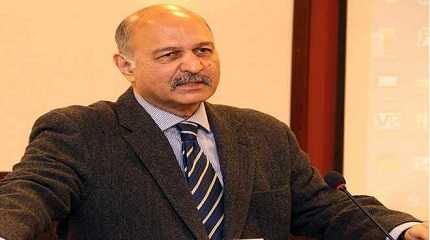
BEIJING, Oct 9 (APP):: The China-Pakistan Economic Corridor (CPEC) as part of the Belt and Road Initiative, has helped build an enabling economic environment in Pakistan with energy, education and the economy being among its key pillars.
China has invested nearly $26 billion in direct projects in Pakistan, creating 236,000 jobs, generating 8,000 megawatts of electricity, and building 510 kilometres of highways and 886 km of the national electricity grid.
Also, about 28,000 Pakistani students are studying in China and more than 20,000 Pakistanis are learning Chinese, said the Chairman of the Pakistan-China Institute, and Chairman of the Senate Defence Committee, Mushahid Hussain Sayed in an article published in China Daily on Monday.
The CPEC is not just about bricks and mortar. It is also about people-to-people exchanges, which are at the core of the strategic bond between the two “iron brothers”, Pakistan and China.
The CPEC was launched when Pakistan was facing immense challenges from terror groups. It was also facing instability and conflict due to the US “war on terror” in neighbouring Afghanistan. By launching the CPEC, China gave a vote of confidence to Pakistan and its people and raised Pakistani people’s hope for a better future.
The CPEC’s successful completion of “early harvest projects” on schedule, with no job cuts even during the COVID-19 pandemic, speaks volumes about the dedication and commitment of both sides to complete these projects.
The Belt and Road Initiative demonstrates the resilience and continuity of a world that is facing turbulence and transformation.
The past 10 years have seen the investment of $1 trillion in about 3,000 Belt and Road projects, which have created 420,000 jobs and helped lift 40 million people out of poverty.
As it celebrates its 10th anniversary, the Belt and Road Initiative faces a barrage of propaganda from its detractors who largely view it through a geopolitical lens because they seek to contain China.
To counter the Belt and Road Initiative, the West has come up with similar development initiatives only to fail in delivering any of its promises.
What critics of the Belt and Road Initiative fail to realize is that the China-proposed initiative is not just about building projects; it is about a different mindset, a mindset that promotes values and delivers on promises at a time when the global centre of gravity is shifting from the West to the East.
The Belt and Road Initiative, together with the Global Development Initiative, the Global Security Initiative and the Global Civilization Initiative, is helping establish a global order based on equality, diversity and inclusivity, build bridges, and promote modernization and connectivity.
As for people in Pakistan and the majority of the Global South, they support the Belt and Road Initiative and participate in and benefit from it due to its people-centric development and “win-win cooperation” approach.
The Global South, as the backbone of the Belt and Road Initiative, is on the right side of history, working together to build a better tomorrow with no overlords and underdogs.




